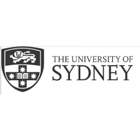- News and articles
- Find usIDP AustraliaIDP BahrainIDP BangladeshIDP CambodiaIDP CanadaIDP ChinaIDP EgyptIDP GhanaIDP Hong KongIDP IndiaIDP IndonesiaIDP IranIDP JordanIDP KenyaIDP KoreaIDP KuwaitIDP LebanonIDP MalaysiaIDP MauritiusIDP Middle EastIDP NepalIDP New ZealandIDP NigeriaIDP OmanIDP PakistanIDP PhilippinesIDP Saudi ArabiaIDP SingaporeIDP Sri LankaIDP Taiwan, ChinaIDP ThailandIDP TurkeyIDP UAEIDP VietnamIDP Corporate
- Social
- English
- Where we operate
- Courses
- Scholarships
- IELTS
- About IDP
- Student Essentials
- News and articles
- Find us
- Find us
- Find nearest IDP offices
- IDP Australia
- IDP Bahrain
- IDP Bangladesh
- IDP Cambodia
- IDP Canada
- IDP China
- IDP Egypt
- IDP Ghana
- IDP Hong Kong
- IDP India
- IDP Indonesia
- IDP Iran
- IDP Jordan
- IDP Kenya
- IDP Korea
- IDP Kuwait
- IDP Lebanon
- IDP Malaysia
- IDP Mauritius
- IDP Middle East
- IDP Nepal
- IDP New Zealand
- IDP Nigeria
- IDP Oman
- IDP Pakistan
- IDP Philippines
- IDP Saudi Arabia
- IDP Singapore
- IDP Sri Lanka
- IDP Taiwan, China
- IDP Thailand
- IDP Turkey
- IDP UAE
- IDP Vietnam
- IDP Corporate
- Social
- Language Switcher
- IDP Education /
- Colleges and Universities /
- Australia /
- The University of Sydney /
- Bachelor of Arts in Crimino...


Location
Australia
Qualification
Bachelor Degree
Fees
AUD48500
(2025)
Duration
3 Year(s)
Next intake
04 August 2025
Entry Score
6.5
IELTSCourse info
The first-year units lay the foundation to the study of crime, social harm and the criminal justice system. Second year units will deepen your understanding of criminology theories and concepts, as well as the criminal justice institutions and practices. You will analyse key debates around crime in relation to topics such as youth, race, gender, ethnicity and Indigeneity. In addition, you will critically examine how society responds to crime through social control and the criminal justice institutions and practices.
A key focus will be placed on features of policing, sentencing, punishment, prisons and alternatives to punishment, such as restorative justice. In third-year units you will consolidate your critical analytical skills in criminology as you delve into complex relationship between crime, law, medicine and science. In addition, you will critically analyse the development and nature of criminal justice in relation to the complex interface of “law and order politics’, the media, culture, crime and society. Finally, you will be able to apply your advanced knowledge to a piece of criminological research of your choice.
- Scholarships View all scholarships
- Internships
Course fees are indicative and should be used as a guide. to get an accurate price.
Duration: 3 Year(s)
Fees: AUD48500
| Intake | Location |
|---|---|
| Semester 1 (February), 2026 | THE UNIVERSITY OF SYDNEY |
| Semester 2 (July), 2026 | THE UNIVERSITY OF SYDNEY |
| Semester 1 (February), 2025 | THE UNIVERSITY OF SYDNEY |
| Semester 2 (August), 2025 | THE UNIVERSITY OF SYDNEY |
Entry requirements for The University of Sydney
A secondary education qualification such as the NSW Higher School Certificate (including national and international equivalents), OR approved higher education study, including approved preparation courses.
IELTS - A minimum result of 6.5 overall and a minimum result of 6.0 in each band
TOEFL IBT - A minimum result of 85 overall including a minimum result of 17 in Reading, Listening and Speaking and 19 in Writing
Application Deadline
The application deadline isn't available Speak to an IDP counsellor for more detailed information
Further information
If you aren't eligible for the above entry requirements, you might ant to explore pathway options at The University of Sydney. If you want to find out more, speak to our counsellors.
THE World Ranking
61st / 1250
THE World RankingWhat our students think
We’ve haven’t received any reviews for this institution yet.
Recommended for you
- THE World Ranking:201
- Study Abroad
- Kelvin Grove , Australia
- Next intake:07/2025
- Entry Score: IELTS 6.5
- AUD12960 (2025)
- THE World Ranking:1201
- Bachelor Degree
- Sydney , Australia
- Next intake:07/2025
- Entry Score: IELTS 6.0
- AUD15215 (2025)
- THE World Ranking:1201
- Bachelor Degree
- Sydney , Australia
- Next intake:07/2025
- Entry Score: IELTS 6.0
- AUD15215 (2025)
- Study Abroad
- Singapore , Australia
- Next intake:05/2025
- Entry Score: IELTS 6.5
- SGD11118 (2025)
- THE World Ranking:251
- Study Abroad
- Melbourne , Australia
- Next intake:03/2026
- Entry Score: IELTS 6.0
- AUD10400 (2025)
- THE World Ranking:149
- Study Abroad
- CRAWLEY , Australia
- Next intake:07/2025
- Entry Score: IELTS 6.5
- AUD14450 (2025)
- THE World Ranking:251
- Study Abroad
- Melbourne , Australia
- Next intake:07/2025
- Entry Score: IELTS 6.0
- AUD10400 (2025)
- THE World Ranking:251
- Study Abroad
- Melbourne , Australia
- Next intake:03/2026
- Entry Score: IELTS 6.0
- AUD10400 (2025)
Your action plan
Step 1
Shortlist your courses
Choose the best three courses you’re most likely to pursue.
Step 2
Check your eligibility
Get an instant in-principle offer for courses with the IDP FastLane tag.
Step 3
Apply through IDP Live
Fill out the form once and use it to apply to multiple courses.
How does IDP FastLane work?
With the FastLane 'Offer in Principle', you'll know in minutes if you'll be accepted!
Select an institution and course
Create your academic profile
Submit your application for an 'Offer in Principle'
Your chosen institution(s) will send you a decision in minutes!
Get ready to apply with an expert counsellor




